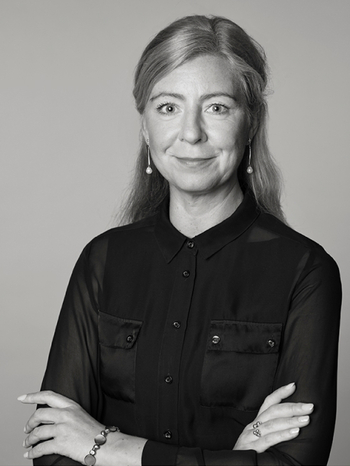Per Krafft d.ä.
Portrait of a young lady with dog
Signed Krafft and dated 1764. Relined canvas 64 x 53.5 cm. Contemporary frame, gilded and carved frame.
Alkuperä - Provenienssi
Earlier in the Collection at Rönnebaekgaard, Danmark.
Sotheby's London, 17 Dec 1998, catalogue no 448.
Kirjallisuus
"Danske Herregaarde" I, 1922, illustrated p. 134.
Bo G Wennberg, "Svenska målare i Danmark under 1700-talet", academic thesis at Lund University, 1940, mentioned and illustrated p. 73.
"Slotte og Herregaarde", II, 1943, illustrated p. 128.
Hillevi Pettersson, "Per Krafft dä verksamhet utomlands 1749-1768", academic thesis at Stockholm University, 1994, mentioned p. 28, illutstrated figure 26, p. 29.
Muut tiedot
Per Krafft began his artistic career as a pupil of Johan Henrik Scheffel in Stockholm. After a few years he went down on the continent and made his first stop in Copenhagen, where he came under Gustav Pilo patronage. The city still attracted most artists were Paris and in 1755 came Krafft to the French capital, where he was employed by Alexander Roslin. The years in Paris came to be really valuable to Krafft's development and under Roslin's influence and teaching perfected Krafft perfected his technical skills.
1768 Krafft returned to Sweden after over 20 years abroad. After the Roslin studies and years in Paris, he came to travel and work in both Italy, Germany, Denmark and Poland - mainly for the Margrave Frederick of Bayreuth, who founded a Arts Academy were Krafft became professor and teacher.
In Hillevi Pettersson's licentiate thesis Per Krafft the Elder's activities abroad 1749-1768 (1994), this portrait depicted and inrangerat over the years in Denmark, ie between 1749 and in 1755. Bo G. Wennberg have in his thesis, Swedish painter in Denmark during the 1700s (1940) with this portrayal, however, neither dated or entered in the list of paintings from Denmark in time. It is likely that neither Pettersson or Wennberg seen this portrait as it is dated in 1769.
The lady's identity is not known and at the research library of the Academy of Art in Copenhagen, there is a photograph of this painting with two possible identities: Marie Christine von Cappelen or Charlotte Elisabeth de Tuxen (born Kling Feldt). Wennberg terms the lady at the painting as Marie Christine von Cappelen (1724-1783), but with a question mark. She was married to Chamberlain Magnus de Beringskjold and they lived at the mansion Rönnebaeksholm in Denmark until 1782. One reason supporting this thesis is that the portrait already has been included in the collections of the Rönnebaeksholm. The thing possibly strengthen that it could be Charlotte Elisabeth de Tuxen (born Klingfeldt) is an inscription on the back frame that reads "Benedicte Cte. Tuxen f Klinex ". Regardless of who it is that Krafft has depicted, we can still see how masterfully he has processed stuff painting and detail of this portrait.


































